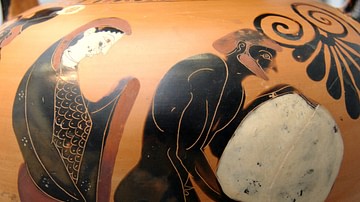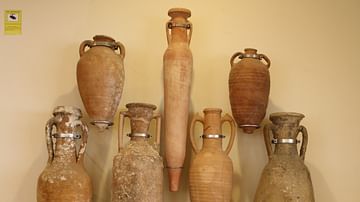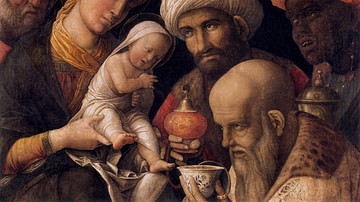Search
Search Results

Definition
Hoenir
Hoenir or Hönir (Old Norse: Hœnir or Hønir) is a very shadowy god figure in Norse mythology, who joins the gods Loki and Odin on a couple of occasions in the old texts. He seems to have attributes of creation and prophecy, and his name might...

Definition
Sisyphus
Sisyphus (or Sisyphos) is a figure from Greek mythology. He was king of Corinth and became infamous for his general trickery when he twice cheated death. Sisyphus ultimately got his comeuppance when Zeus dealt him the eternal punishment of...

Definition
Amphora
An amphora (Greek: amphoreus) is a jar with two vertical handles used in antiquity for the storage and transportation of foodstuffs such as wine and olive oil. The name derives from the Greek amphi-phoreus meaning 'carried on both sides'...

Definition
Magi
The Magi are the visitors who came to Bethlehem to worship the newly-born Jesus of Nazareth in the gospel of Matthew (2:1-2). 'Magi' is a transliteration of the Greek magos from old Persian magus ("powerful") as a reference to the Zoroastrian...

Article
The Life of Diogenes of Sinope in Diogenes Laertius
Diogenes of Sinope (c. 404-323 BCE) was a Greek Cynic philosopher best known for holding a lantern to the faces of the citizens of Athens claiming he was searching for an honest man. He was most likely a student of the philosopher Antisthenes...

Article
Tacitus' Account of The Battle of Mons Graupius
The Battle of Mons Graupius was fought in 83 CE between the invading forces of Rome, under the general Agricola, and the Picts, the indigenous people of modern-day Scotland, under their leader Calgacus. The only account of the battle is found...